In November 2011, the EDGE Programme, working in conjunction with the National Trust for Nature Conservation (NTNC) to deliver the first EDGE Conservation Tools Training Course. The course was attended by fifteen participants, seven of which were awarded EDGE Fellowships.
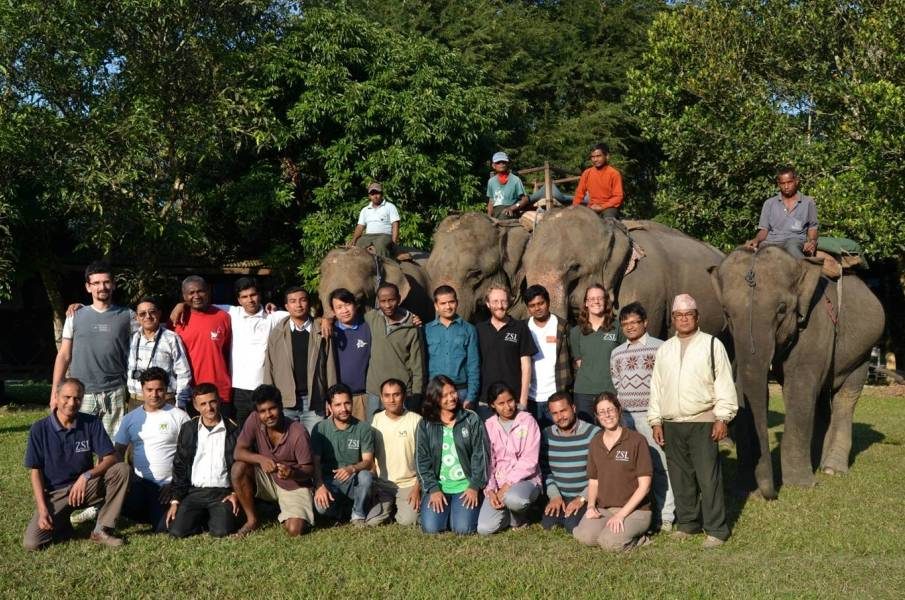
Group
In November 2011, ZSL’s EDGE of Existence of Programme, working in conjunction with the National Trust for Nature Conservation (NTNC), delivered its inaugural EDGE Conservation Tools Training Course.
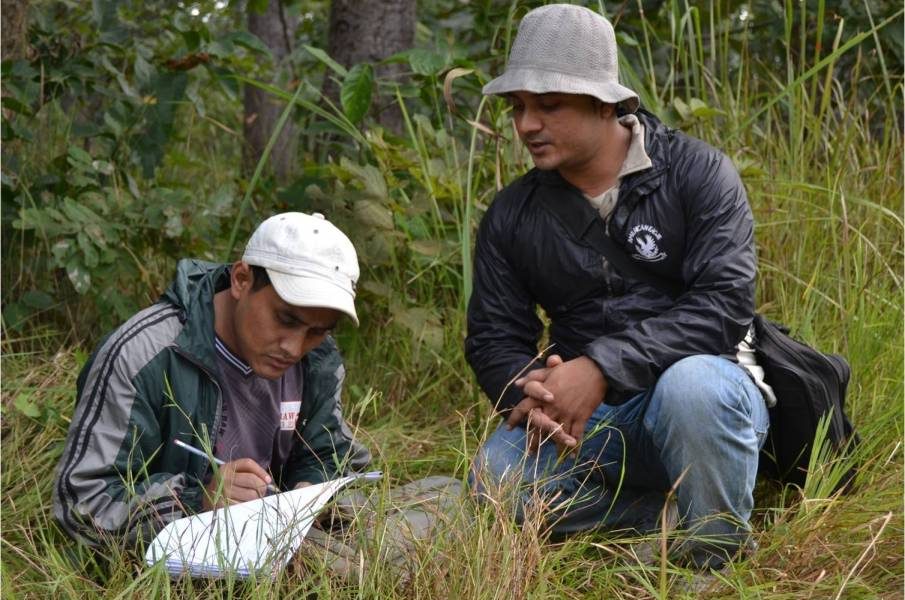
Vegetation sampling
The course was attended by 15 participants and scientists from ZSL and NTNC taught four core modules: the principles of conservation biology; ecological monitoring; social science surveying techniques; and applied conservation action.
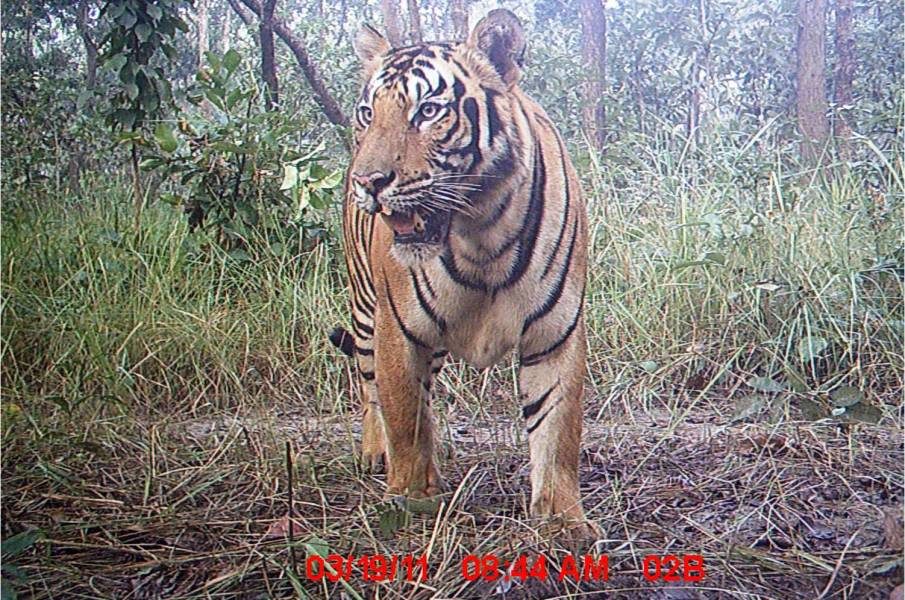
Tiger
As one of the mini-projects carried during the course, a grid of 25 camera traps, spaced 1 km apart, was set up. The camera traps were check after just one week and among the photos of samba deer, spotted deer, wild boar, rhino, porcupines and even peacocks, was this stunning tiger.
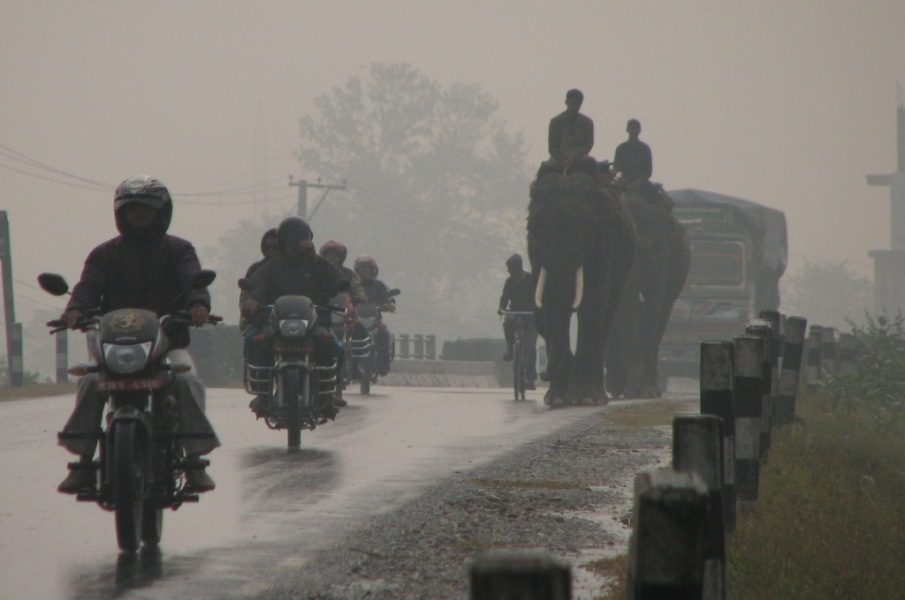
Elephant
Elephants were used to carry out a line transect survey of tiger prey species. The number of target species seen on each transect was counted and this enabled the generation of estimates of abundance for each.
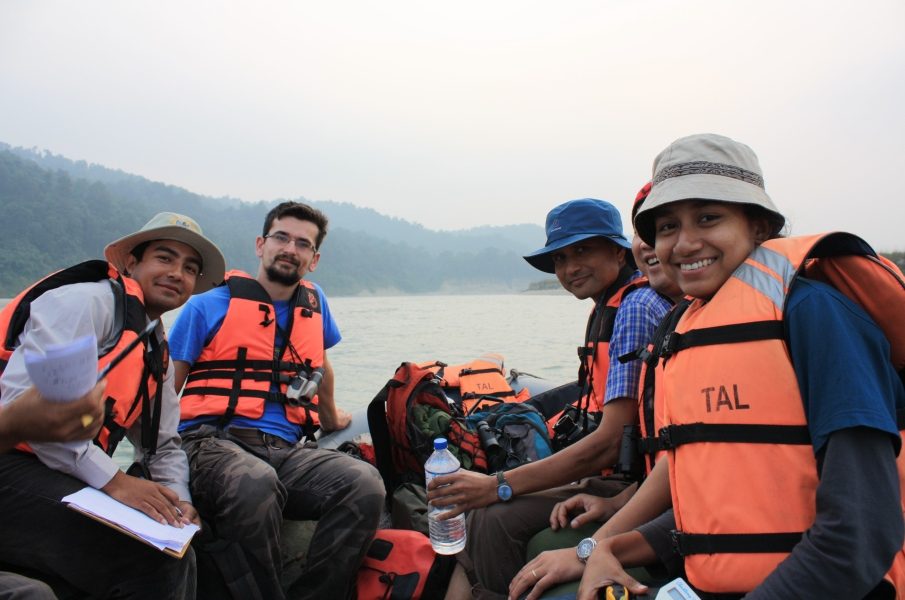
Boat survey
Participants travelled down the Rapti and Narayani rivers to study the population status and spatial distribution of gharials.
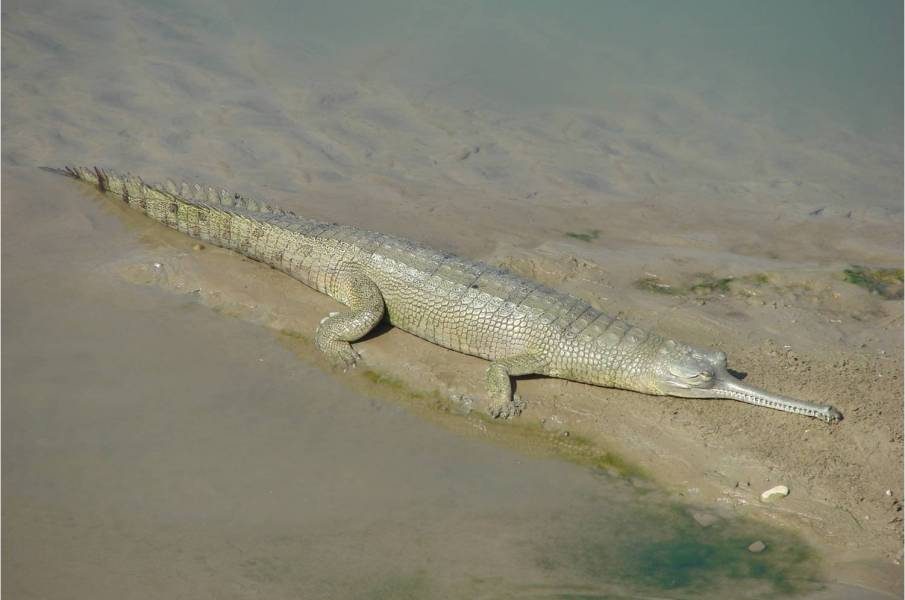
Gharial
During the boat survey we saw several gharials, a highly distinctive species of crocodile endemic to India and Nepal. The gharial has undergone a massive population decline of 96% in the past sixty years, primarily as a result of habitat degradation and overfishing and fewer than 200 individuals survive in the wild.
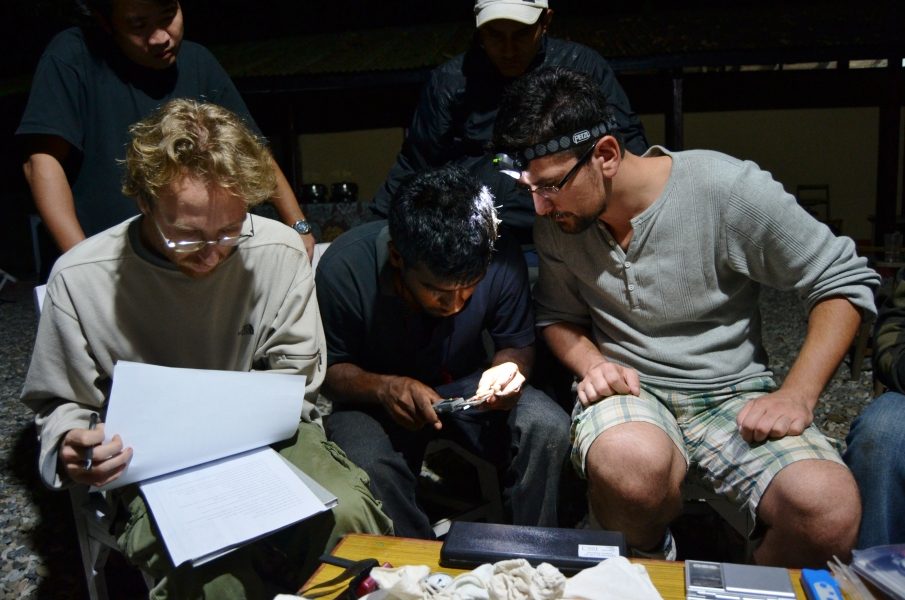
Biometrics
Herptile surveys in the riverine forest of Chitwan National Park were carried out to compare survey methods and assess temporal patterns in detection. When the animals were caught, they were identified and biometric measurements taken.
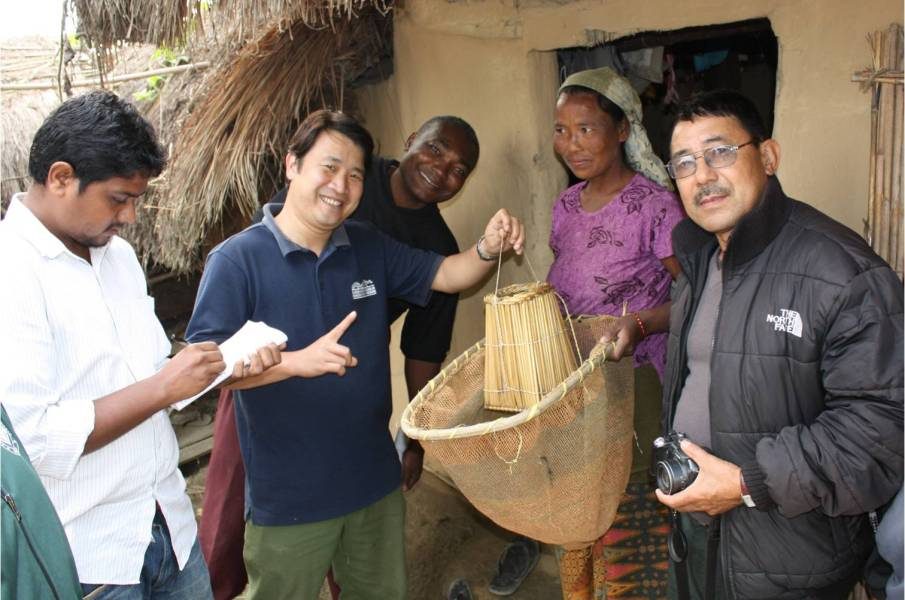
Community
Visits to local communities in the buffer zone enabled the participants to learn more about community-led conservation initiatives in Nepal and think creatively about the applicability of some of the principles to their own projects.
Radiotracking
One of the projects carried out by NTNC involves radio tracking rhino to find out more about their ecology and behaviour. Some of the participants were fortunate enough to be able to accompany the radio tracking team and follow rhinos fitted with radio collars.
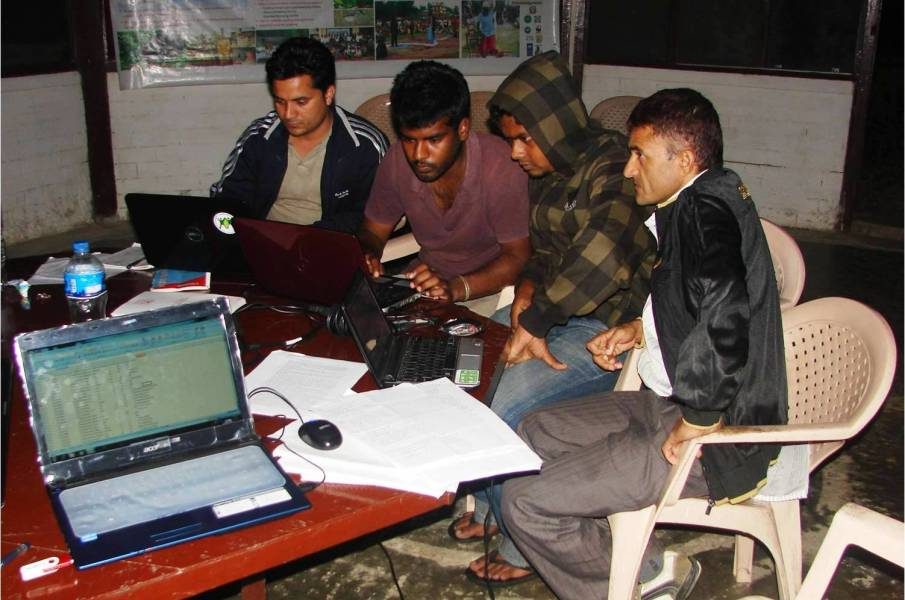
Statistics
The participants worked extremely hard for the entire duration of the 4-week course, but the last few days were the toughest – they had to analyse the results of their field projects, using newly-learnt statistical tools such as “R”, Distance and Presence, before writing up and presenting their results to the whole group.
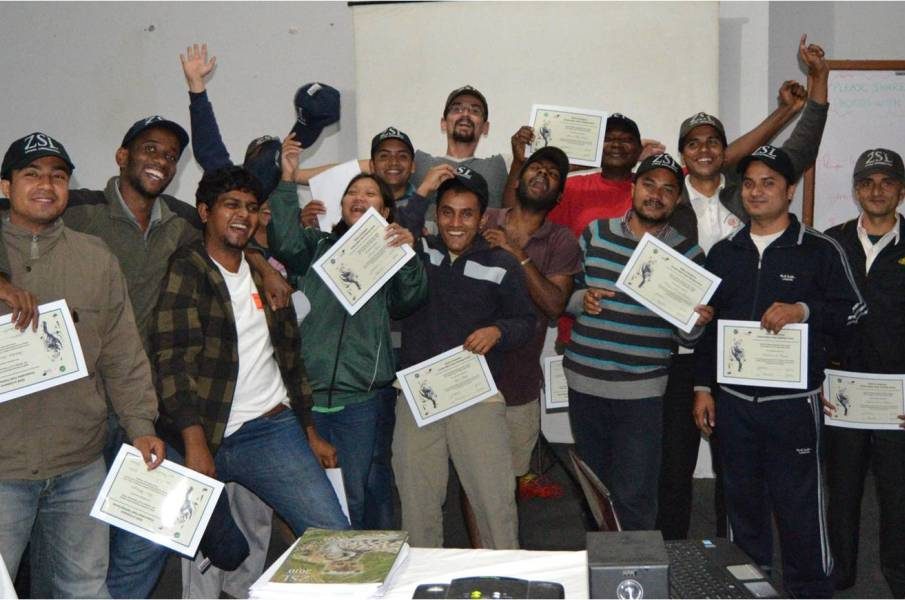
Certificates
All of the participants successfully completed the training course and were presented with certificates to mark their achievements.
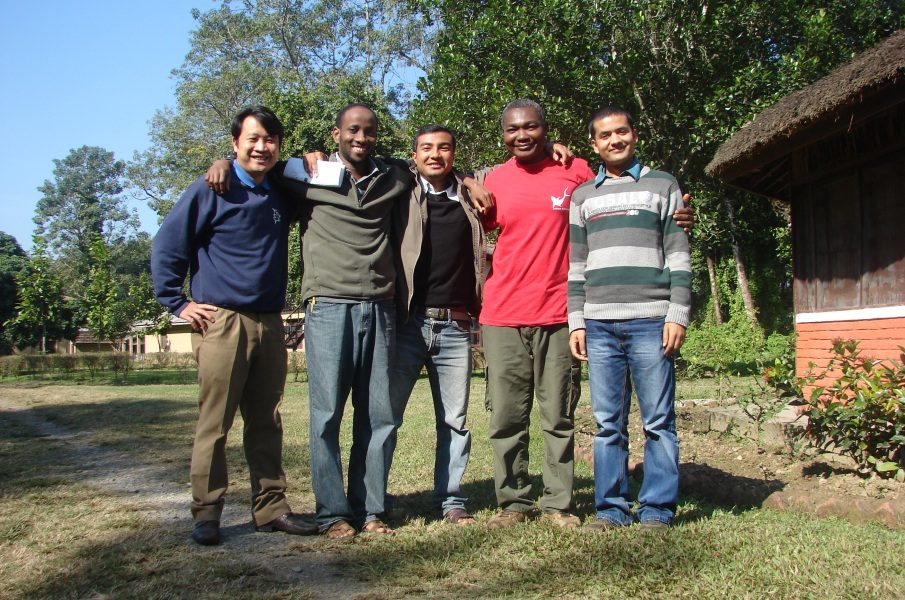
Fellows
The EDGE team is now working with the course participants to develop EDGE Fellowships. If you are interested in attending the next training course and becoming an EDGE Fellow, please contact fellows@edgeofexistence.org